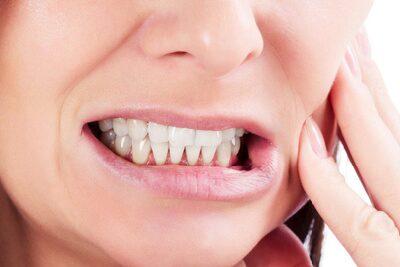Content from the National Sleep Foundation
Sleep bruxism, also known as nocturnal tooth grinding, is the medical term for clenching or grinding teeth during sleep. A type of movement disorder that occurs during sleep, bruxism is a common condition. One survey estimate, that 8% of adults grind their teeth at night and a study shows that more than a third of parent’s report symptoms of bruxism in their children. Occasional bruxism may not be harmful but when it occurs regularly, it may be associated with moderate to severe dental damage, facial pain and disturbed sleep.
Although the causes of bruxism are unknown, one study links it with such factors as anxiety, stress, alcohol consumption, cigarette smoking, caffeine, sleep apnoea, snoring and fatigue. Importantly, psychiatric or psychological factors do not play a role in most cases. Use of certain medications, including amphetamines are also associated with episodes of bruxism. Sleep apnoea may also be related to sleep bruxism and evidence suggests that treating sleep apnoea can help alleviate sleep bruxism.
People who have sleep bruxism can also suffer headaches, earaches, jaw pain, jaw joint disorders and damaged teeth. Sleep bruxism may also be linked with other medical conditions and have an impact on quality of life. If you feel you may suffer from sleep bruxism talk to your doctor or dentist about ways to treat it.

FACT: Sleep plays a vital role in good health and well-being throughout your life. Getting enough quality sleep at the right times can help protect your mental health, physical health, quality of life, and safety.
The way you feel while you’re awake depends in part on what happens while you’re sleeping. During sleep, your body is working to support healthy brain function and maintain your physical health. In children and teens, sleep also helps support growth and development.
6 REASONS TO GET A GOOD NIGHTS REST

- SLEEP HELPS REDUCE STRESS
- SLEEP CAN IMPROVE YOUR MEMORY
- SLEEP CAN LOWER YOUR BLOOD PRESSURE
- SLEEP HELPS YOUR BODY TO HEAL AND FIGHT BACK
- SLEEP CAN HELP YOU MAINTAIN YOUR WEIGHT
- SLEEP PUTS YOU IN A BETTER MOOD.
LINKS BETWEEN YOUR TEETH AND A POOR NIGHTS SLEEP There are many causes of a poor night’s sleep:
- Sleeping too much during the day
- Lack of exposure to sunlight
- Frequent urination
- Physical pain
- Prescription medications
- Stress, worry and depression
- Work schedules
- Sleep Apnoea
But how many of you think it could be caused by your teeth? Bruxism or teeth grinding as we know it affects around five per cent of the population. These people are regular, forceful tooth grinders and it often happens during their sleep. If you frequently grind your teeth while sleeping, it can have a very negative impact on your dental health. Bruxism can also wear down your teeth more quickly, and lead to damage and premature enamel loss. Bruxism can cause frequent headaches or earaches.

A number of health issues are linked to Bruxism, such as stress and teeth misalignment, but one of the biggest risk factors is a serious condition called obstructive sleep apnoea. This occurs when the throat muscles relax during the night, blocking the airway and interrupting breathing. Nearly one in four people with sleep apnoea grind their teeth at night and men are more likely to be affected.
Luckily, managing sleep apnoea may help nix night-time teeth grinding. Lifestyle changes, such as losing weight and quitting smoking can help as can treating nasal allergies. In addition, your dentist may recommend a mouthguard or oral splint to prevent damage to teeth caused by grinding and gnashing.

HOW IS IT TREATED?
Since grinding your teeth is generally habitual, it is treated through behaviour modification rather than medical intervention. Your dentist may suggest wearing a mouthguard or mouth splint to create a physical protective barrier between your teeth.
If stress or anxiety are causing you to grind your teeth, you may be recommended to seek treatment from a mental health professional. Your dentist may also recommend anti-inflammatory medication or a muscle relaxant to help minimise pain in your joints, jaw and teeth.


